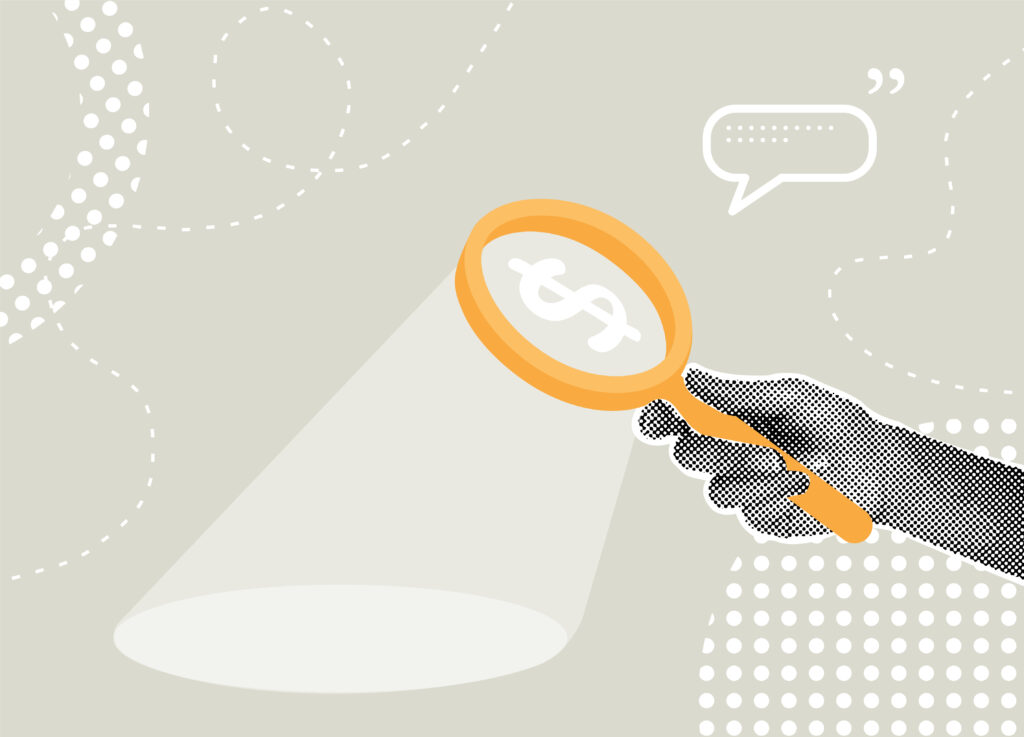STA International – a management-owned business founded in 1955 – is a full-service commercial debt collection agency, providing commercial collections nationwide. We offer services that include US Debt Collection, International Debt Collection, Receivables Management, and Skip Tracing. With a reputation built upon professionalism and integrity, STA International is the ideal collection agency to represent your organization.
WOW!
Debt Collection Ethics: Protecting Reputation While Enforcing Payment
In the world of business-to-business (B2B) transactions, debt collection is often viewed as a necessary but uncomfortable process. Companies depend on timely payments to manage cash flow, yet the way receivables are pursued can significantly affect reputation and long-term business relationships. Ethics in debt collection is not just a compliance requirement. It is a reputation management strategy.
Why Reputation Matters in Debt Collection
Unpaid invoices can put real pressure on a company’s bottom line. However, aggressive or unethical collection tactics risk doing long-term damage:
-
Loss of future business: Heavy-handed approaches may secure short-term payments but destroy trust with valuable clients.
-
Regulatory scrutiny: Many regions impose strict rules on collection practices, and violations can lead to fines or legal action.
-
Public perception: Word spreads quickly in today’s connected world, and a single negative story can impact your brand far beyond one transaction.
For companies working internationally, the stakes are even higher. Missteps in one country can ripple across multiple markets and weaken credibility.
The Core Principles of Ethical Debt Recovery
Balancing enforcement with courtesy starts with clear principles:
Transparency in Communication
Provide accurate, timely information about the debt owed, terms of repayment, and potential consequences of non-payment. Avoid ambiguous language or threats.
Respectful Engagement
Treat debtors as business partners rather than adversaries. Respect goes a long way in preserving relationships, especially in B2B environments where companies often cross paths again.
Compliance With Local Laws
Collection laws differ by jurisdiction. Ensuring compliance not only protects you legally but also signals professionalism to clients and partners.
Fair Dispute Resolution
Allow space for questions, misunderstandings, or errors to be addressed. Sometimes a delayed payment stems from administrative backlogs rather than intent to default.
Documentation and Accountability
Maintain detailed records of communication and agreements. This reduces errors and demonstrates integrity if disputes escalate.
Balancing Enforcement With Courtesy
The key challenge in debt collection is striking the right balance:
-
Firm but not hostile: Communicate urgency and importance, but avoid overly aggressive tactics.
-
Consistent but flexible: Apply policies fairly while allowing flexibility for businesses facing temporary hardship.
-
Results-driven but relationship-focused: Successful recovery secures payment without damaging future opportunities.
Think of debt recovery like a negotiation in a long-term partnership. Push too hard, and you may win the battle but lose the partner. Approach with fairness, and you strengthen the foundation for future business.
Practical Strategies for Ethical Debt Collection
-
Train collection teams in both compliance and communication skills.
-
Use technology to monitor tone, frequency, and accuracy of outreach.
-
Build escalation pathways that prioritize resolution before legal action.
-
Create internal ethics guidelines that align with your brand values.
-
Regularly audit collection practices to ensure they reflect both legal and reputational standards.
The Business Case for Courtesy
Far from being a “soft” approach, ethical debt collection delivers measurable results. Companies that prioritize courtesy and transparency often see:
-
Higher recovery rates due to cooperative engagement.
-
Stronger client retention after disputes are resolved.
-
Lower risk of regulatory penalties or lawsuits.
-
Enhanced brand trust, which influences future partnerships.
Final Thought
In B2B debt recovery, ethics and reputation are not separate from performance. They are performance. By balancing enforcement with courtesy, businesses not only recover what they are owed but also protect the relationships and reputation that drive future growth.
👉 Request a free quote and learn how our commercial collection services can help you recover more – faster – while protecting your global cash flow and strengthening your bottom line across borders.

The Hidden Cost of Delayed Receivables: How Aging AR Impacts Business Valuation, Lending Terms, and Growth
Most companies view unpaid receivables as a short-term inconvenience.
In reality, aging accounts receivable (AR) can quietly erode a company’s financial strength, distort its valuation, tighten its access to capital, and limit its ability to grow. For decision-makers in finance, operations, and executive leadership, delayed receivables are more than just a collections issue – they’re a strategic risk.
The True Impact of Aging AR
1. Weakened Cash Flow
Cash is oxygen for a business. A backlog of 60, 90, or 120-day receivables can create artificial scarcity, forcing companies to delay investments, stretch payables, or dip into credit lines. This inhibits everything from hiring and inventory planning to R&D and marketing.
2. Damaged Business Valuation
For any company considering sale, merger, or investment, aging receivables can be a red flag. Acquirers and investors scrutinize AR aging schedules. A large percentage of receivables in the 90+ day bucket leads to write-downs or discounts in enterprise value. In short, you’re worth less on paper, even if your sales look strong.
3. Tighter Lending Terms
Banks and financial institutions evaluate AR quality when setting credit terms. A bloated aging report can trigger:
-
Reduced borrowing base in asset-based lending
-
Higher interest rates due to perceived risk
-
Shorter repayment terms
-
Additional covenants or restrictions
4. Strained Internal Resources
The longer AR goes uncollected, the more time your team spends chasing it – time that could be spent on revenue-generating activity. Eventually, the opportunity cost exceeds the receivable value.
5. Erosion of Customer Relationships
Unresolved balances can strain partnerships. A professional third-party collections agency, when used early, can preserve relationships while maintaining leverage and resolution speed.
What Does “Healthy” AR Look Like?
Industry benchmarks vary, but in general:
-
<30 Days: 60–80% of AR
-
31–60 Days: 10–20%
-
61–90 Days: <10%
-
90+ Days: <5%
If more than 20% of your receivables are in the 60+ day category, it’s time to act.
When to Outsource Collections
-
Internal follow-ups are no longer effective
-
Clients promise payment but repeatedly delay
-
Your team is spending more time collecting than selling
-
You’re approaching quarterly close with unresolved balances
-
Your aging report is negatively impacting KPIs or lender conversations
Proactive Steps You Can Take
-
Conduct a monthly AR aging report review
-
Segment clients by payment behavior and risk
-
Automate reminders and follow-ups for invoices nearing 30 days
-
Engage a collection partner before invoices hit 90 days
-
Review your contracts to ensure favorable payment terms and enforcement clauses
Final Word
Collections isn’t just about recovering money – it’s about protecting your business. The longer you wait, the more you lose. Not just revenue, but valuation, borrowing power, and growth momentum.
At STA International we don’t just recover what’s owed – we help you restore financial clarity and strengthen your strategic position.
Why Choose STA International?
We’ve built our reputation on integrity, results, and compliance. Our international collection services include:
-
Contingency-based collection (no recovery, no fee)
-
In-country agents familiar with local collection laws
-
B2B-focused strategies tailored to commercial debtors
-
Real-time progress reporting and client portal access
We understand that maintaining customer relationships is often just as important as collecting the debt itself. Our team combines firm negotiation with respectful communication to protect your brand and preserve future business potential wherever possible.
👉 Request a free quote and learn how our commercial collection services can help you recover more – faster – while protecting your global cash flow and strengthening your bottom line across borders.
STA International – a management-owned business founded in 1955 – is a full-service commercial debt collection agency, providing commercial collections nationwide. We offer services that include US Debt Collection, International Debt Collection, Receivables Management, and Skip Tracing. With a reputation built upon professionalism and integrity, STA International is the ideal collection agency to represent your organization.

Navigating International Commercial Debt Collection: What U.S. Businesses Need to Know
The Growing Challenge of Cross-Border Collections
As U.S. companies pursue global expansion, many find that international sales and partnerships come with an overlooked challenge: collecting overdue invoices across borders. While the rewards of global commerce can be significant, so too are the risks – especially when payment isn’t received on time, or at all.
At STA International, we’ve supported commercial creditors since 1955, helping them recover outstanding debts both domestically and internationally. Our proven approach to international commercial debt collection ensures that your receivables remain protected – regardless of where your clients operate.
Below, we outline what U.S. businesses need to know when managing cross-border debt collection efforts and how to strengthen your global credit control strategy.
The Complexities of International Debt Collection
Unlike domestic collections, international recovery efforts are often slowed—or even blocked—by a maze of unfamiliar laws, financial regulations, and cultural dynamics. Key challenges include:
1. Varying Legal Systems
Each country has its own framework for how debt is recognized and enforced. Some are creditor-friendly, others are not. Without clear contract terms specifying jurisdiction and governing law, enforcement can be time-consuming or impossible.
2. Language and Cultural Barriers
Collection is as much about communication as it is about compliance. Local etiquette and tone matter. What’s persuasive in one culture may be offensive in another. Language barriers can cause misunderstandings that derail recovery efforts.
3. Time Zones, Currency, and Banking Differences
Simple logistics can complicate recovery:
-
Time zone lags delay communication.
-
Currency fluctuations impact repayment value.
-
Local banking regulations may restrict transfers or require alternate payment methods.
How U.S. Companies Can Improve International Recovery
Success in global debt collection depends on proactive planning and local expertise. Here are three key strategies:
1. Partner with a Global Commercial Collection Agency
Working with a firm like STA International ensures:
-
Access to in-country agents who understand local laws and customs
-
B2B expertise tailored to complex commercial relationships
-
Compliance with international regulations
-
Transparent reporting and real-time updates
2. Strengthen Credit and Contract Practices
Protect your receivables before problems arise:
-
Run country-specific credit checks
-
Use professionally translated agreements
-
Include detailed payment terms, governing law, and dispute resolution clauses
3. Act Early
Don’t let accounts age. Initiate outreach within 30 days of a missed due date. Prompt action signals professionalism and prevents debt deprioritization.
Why STA International?
We’ve built our reputation on results, professionalism, and compliance. Our international collection services include:
-
Contingency-based collections (no recovery, no fee)
-
In-country agents familiar with local regulations
-
Commercial B2B focus, not consumer debt
-
Real-time progress tracking via client portal
We recognize that preserving the client relationship is often just as important as collecting the debt. That’s why we combine firm negotiation with respectful, brand-protective communication.
Secure Your Global Receivables Strategy
Whether you’re expanding internationally or managing aging accounts abroad, STA International has the global infrastructure and proven experience to recover your money – efficiently and compliantly.
👉 Request a free quoteand discover how our international debt collection services can protect your cash flow and support your global growth.
STA International – a management-owned business founded in 1955 – is a full-service commercial debt collection agency, providing commercial collections nationwide. We offer services that include US Debt Collection, International Debt Collection, Receivables Management, and Skip Tracing. With a reputation built upon professionalism and integrity, STA International is the ideal collection agency to represent your organization.

5 Best Practices for Commercial Debt Collection: Proven Strategies to Improve B2B Debt Recovery and Protect Cash Flow
Unpaid invoices can quietly undermine even the most successful businesses. For companies offering credit to other businesses, a structured, strategic approach to commercial debt collection is critical. Whether you manage accounts receivable in-house or outsource collections, these five best practices will help you improve recovery rates, reduce aging accounts, and preserve valuable business relationships.
1. Establish Clear Credit Policies Upfront
The foundation of effective commercial collections is set before payment is ever due. Create a clear, written credit policy that outlines your payment terms, accepted methods of payment, due dates, interest charges, and steps you’ll take in the event of non-payment.
Make sure these terms are:
- Included in every sales agreement, contract, and invoice
- Reviewed during client onboarding
- Signed or acknowledged by the client
Transparent credit policies reduce confusion, protect your business legally, and discourage late payments.
2. Invoice Promptly and Accurately
Late or inaccurate invoicing causes delays and disputes. To improve B2B collections success, issue invoices immediately after delivering products or services and ensure the following elements are clearly included:
- Client name and PO number (if applicable)
- Itemized description of services or goods
- Invoice issue date and due date
- Payment instructions and late fee policy
Using automated invoicing systems can reduce manual errors and send scheduled payment reminders. The more professional and timely your invoice process, the more likely you are to get paid on time.
3. Follow a Consistent Debt Collection Process
A structured and documented commercial debt collection process sends a message that your company takes payment seriously. Without follow-up, even good clients may deprioritize your invoices.
Example collection schedule:
- 1–7 days past due: Friendly reminder with invoice attached
- 15–30 days: Phone follow-up or second notice
- 45–60 days: Written demand letter and credit hold
- 60–90+ days: Referral to a commercial collections agency
Always document communication attempts and keep detailed records. This protects your business if legal or third-party recovery is needed later.
4. Know When to Use a Commercial Collections Agency
If an account remains unpaid after 60–90 days, and your team has exhausted internal efforts, it’s time to escalate. A qualified commercial collection agency brings legal expertise, negotiation leverage, and third-party authority that often leads to faster results.
Partnering with an agency such as STA International means:
- B2B-focused debt collection services
- Ethical and professional communication
- Preservation of your company’s reputation
- Increased recovery rates with minimal disruption
Our team acts as an extension of your AR process to help you focus on growth – not overdue accounts.
5. Preserve Relationships While Collecting
Effective B2B debt collection requires balancing firmness with professionalism. Many businesses fall behind due to temporary financial difficulties—not bad intent.
Stay professional and solution-focused:
- Offer structured payment plans when appropriate
- Understand the client’s circumstances
- Keep communication courteous and objective
By treating debtors with respect, you improve your chances of payment and maintaining a long-term business relationship.
Partner with STA for Results-Driven Commercial Debt Recovery
At STA, we specialize in business-to-business debt collection that gets results—without compromising your brand. Our expert team helps businesses across industries recover past-due accounts quickly, compliantly, and professionally. Request a free quote and learn how our commercial collection services can help you recover more, faster—while protecting your bottom line.
STA International – a management-owned business founded in 1955 – is a full-service commercial debt collection agency, providing commercial collections nationwide. We offer services that include US Debt Collection, International Debt Collection, Receivables Management, and Skip Tracing. With a reputation built upon professionalism and integrity, STA International is the ideal collection agency to represent your organization.
June 14, 2025

7 Critical Reasons to Retain a Third Party Collection Agency
Why Retain a Third-Party Debt Collection Agency For Your B2B Debt? Here Are 7 Critical Reasons To Consider.
Cash flow management is one of the most critical aspects of running a business. It’s how you pay your staff on time, pay your vendors, stock up on inventory, and secure funds for expansion into new markets.
Following up on overdue payments from the organizations you do business with is the key to maintaining a healthy cash flow. Slow payers and debt defaulters can harm your business. Without the money you need to run your enterprise, it becomes impossible to stay afloat.
However, this can often require an endless series of phone calls and an infinite number of demand letters and emails to delinquent debtors. If your time or resources are limited or your efforts have proven futile so far, hiring a third-party debt collection agency could prove worthwhile for your enterprise.
While there are several benefits to retaining credit collection services for your organization, these are some of the most critical:
1. Legal Protection and Compliance
Countries and states have varying laws and regulations that govern debt collection and debt collection practices. The more time goes by, the more difficult it becomes to collect debts.
It’s best not to underestimate the lengths delinquent debtors would go to avoid settling their overdue accounts. A well-informed entity will not hesitate to file a civil suit against you and your company if your collection practices and actions go against what the law prescribes. Debt collection agencies are well-versed in federal, state, and even international law as far as foreign debt collection matters are concerned.
Hiring a collection service to recover overdue accounts on behalf of your business protects you against any potential legal repercussions that may result from attempting to recover debt on a delinquent account on your own.
Additionally, a third-party debt collection agency ensures that your company complies with the provisions of the Sarbanes-Oxley Act of 2002. This Act was established to offer protection to investors, shareholders, and the general public from errors in accounting and fraudulent financial practices.
A debt collection agency can help your firm demonstrate that its internal controls, alongside the financial accounting framework it has in place, meet the requirements set out by the Act. It will not only prove your company’s due diligence but may also minimize any associated consultancy expenses.
2. Efficient and Effective Debt Recovery
A reputable debt collection agency has a wide array of tools and resources at its disposal to help businesses recover commercial debts. A company trying to recover delinquent debts on its own can accrue a massive amount of legal fees and other costs, not to mention the loss of time.
Advanced collection methods such as skip-tracing, asset location, credit history analysis, and public record searches speed up domestic and international debt recovery processes tremendously. Most businesses do not have access to the tools necessary to pursue these methods, making it impossible for them to recover delinquent debt quickly and cost-effectively independently.
3. Litigation and Tax Documentation
A US debt collector pursuing domestic or overseas debt collection keeps a detailed record of every interaction they have with delinquent debtors. This is extremely helpful in cases where the ultimate recourse is to file a lawsuit against the debtor for the unpaid debt.
Alternatively, suppose you decide to write off the outstanding amount as bad debt and are looking to claim it as a tax deduction for your business. In that case, the IRS needs to see supporting documentation to that effect. The documentation provided by a commercial collection agency would show that your company exhausted all the available avenues before it decided to write it off and claim it as a deduction.
4. Accounts Receivable Management Services
A third-party debt collection agency can provide your company with domestic and international receivables management services. Slow payers and unpaid invoices can have a devastating impact on your business’s cash flow. By outsourcing your accounts receivable management, your in-house accounting team doesn’t need to spend valuable time and resources chasing after pending invoices.
5. Financial Advice and Support
Debt collections agencies specialize in credit management. Given that this is their area of expertise, it puts them in a unique position to give you invaluable information and advice that could strengthen your firm’s financial position.
They can give you tips on managing and ramping up your cash flow and valuable strategies for getting your business out of debt. They can even give you practical advice on screening prospective commercial clients to identify slow payers or those facing liquidity issues.
6. Undivided Focus
Business owners frequently have several priorities they’re juggling at any given time.
On the other hand, a debt recovery agency has just one fundamental objective: to collect unpaid debts. This gives them all the time necessary to dedicate their energy and resources to debt recovery – a luxury that most businesses don’t have.
This undivided focus is what ultimately allows debt collection agencies to get rapid collection activity results. Any past due accounts your business has will get the full, unlimited attention of the collection agency, freeing you up to focus on running your business without distraction.
7. Leave It to the Experts
In an ideal world, your business would receive immediate payment for any products sold or services rendered. Unfortunately, the business world is anything but ideal. Granted, clients who settle their accounts on time do exist. However, if you’ve been in business long enough, you know that not all clients are reliable.
Retaining a third-party debt collection agency gives you more control over the critical aspects of running your business and helps manage that ever-growing pile of pending invoices. Not only does it minimize the legal risks to your company, but it also makes for an efficient and effective recovery process.
Bottom line: leave it to the experts to chase the debt so you can focus on pursuing growth.
Did you find this information helpful? If so, be sure to check out our blog to learn how to choose a collection agency.
STA International – a management-owned business founded in 1955 – is a full-service commercial debt collection agency, providing commercial collections nationwide. We offer services that include US Debt Collection, International Debt Collection, Receivables Management, and Skip Tracing. With a reputation built upon professionalism and integrity, STA International is the ideal collection agency to represent your organization.

How to Choose a Debt Collection Agency
Thinking About Hiring a Debt Collection Agency For Your B2B Debt? Here Are 10 Critical Factors To Consider.
Let’s face it: every business is going to come across unpaid receivables occasionally. Whether you’ve got a single thorn-in-your-side account or you’re looking at a column of past due invoices, partnering with a professional commercial debt collection agency can mean the difference between positive cash flow and painful write-offs. But how do you select an agency that seamlessly integrates with and BEST REPRESENTS your company?
When choosing a debt collection agency, there are several important factors to consider:
1. Does the agency specialize in commercial (business) debt collection?
Is commercial debt collection the agency’s core competency? There are significant differences between collecting consumer accounts (non-business debts owed by individuals) and collecting commercial or business debt. In order for commercial debt collection to be effective, each file/account needs to be handled with a unique, individualized approach.
Commercial collection specialists know how to get through to the debtor’s decision-makers. They’re experts in identifying and addressing potential reasons for non-payment during the debt collection process.
2. Is the debt collection agency certified by a qualified accrediting organization?
Only a handful of registered commercial collection agencies in the US are certified by the Commercial Law League of America (CLLA), the premier certifying body in the field. In order to be certified, agencies must adhere to the highest standards of professionalism. In order to maintain this certification, agencies must reapply annually and ensure that the rigorous requirements continue to be met.
3. Is the debt collection agency insured?
In order to protect both themselves and their clients, a professional collection agency needs to have the proper insurances. The most important policy from a client perspective is a surety bond that will ensure the receivables collected on your behalf. In a worst-case scenario, this bond provides clients a plan of action should the collection agency do anything illegal or unethical.
4. Does the debt collection agency have a reputation for being professional and respectful?
Regardless of whether you choose to do business with this customer in the future, the conduct of your collection agency is an extension of your company. When considering a debt collection agency, it’s important to determine whether they have a reputation for treating debtors respectfully.
5. Does the debt collection agency have the capability to manage both national AND international debts?
Many successful businesses today think globally. Can your commercial collection agency provide service throughout the world? It’s not uncommon for an agency to SAY that they handle international debt and then scramble to find an outsourcing partner if the situation ever occurs. Make sure that your agency has global experience and existing infrastructure to support it. If there’s any chance you’ll need to pursue debtors internationally, this expertise is critical.
6. Does the debt collection agency use the appropriate collection tools and resources for the job?
The best collection agencies have the proper tools and resources to ensure that they see the highest returns for their clients. These will include appropriate information technology, an active network of attorneys in every city and state, and a structured workflow.
7. Does the debt collection agency have a highly skilled and trained staff?
A collection agency’s front-line staff will be interacting with your clients. Ensure that those individuals are trained in current collection strategies, techniques, and compliance. Experience counts!
8. Does the debt collection agency provide real-time transparency into their efforts?
A client-centric collection agency will be sure to provide you the ability to get real-time updates on the status of debt collection efforts of your accounts. Whether it’s via an online portal or through a similar type of solution, you should be able to access information about your accounts whenever you need to.
9. Can the debt collection agency find your debtors?
Sometimes your debtors won’t be where you thought they were. Businesses relocate. Guarantors may no longer live where they did when they signed a credit application. Professional collection agencies will use a technique known as ‘skip tracing’ to find the current whereabouts of your debtors. The collection agency should have access to specialized databases – and training for collectors – that will allow them to locate a debtor who has left no forwarding address. A dead-end doesn’t always have to be a dead-end, and the best collection agencies know this!
10. Does the debt collection agency report to credit reporting agencies?
Letting commercial debtors know (at the onset of collection efforts) that their failure to fulfill their business obligations can impact their creditworthiness can incentivize faster payment. Professional collection agencies will maintain relationships with and report to business credit reporting services. Additionally, they’ll have access to useful information that can be provided by these agencies.
Above all: when selecting a debt collection agency to collect your business debt; remember that you’re choosing a partner and not just a vendor. Your ultimate goal should be maximizing your recoveries while ensuring that your organization is professionally represented in the process.
STA International – a management-owned business founded in 1955 – is a full-service commercial debt collection agency, providing commercial collections nationwide. We offer services that include US Debt Collection, International Debt Collection, Receivables Management, and Skip Tracing. With a reputation built upon professionalism and integrity, STA International is the ideal collection agency to represent your organization.

A Collection Agency’s Overview of the Debt Collection Litigation Process and Costs Within the USA

Regardless of size, revenue, or industry, most organizations have one unfortunate commonality: the need to enforce payment of debt. When this occurs, many businesses choose to retain the services of a collection agency to assist with the process. But sometimes collection efforts require legal assistance – which means the need for debt collection litigation.
At STA International, we extend every possible effort to obtain payment on a debt before recommending that we forward the debt to an independent law firm. In the United States, lawsuits generally should be filed in a court where the debtor is located, so the court has jurisdiction over the debtor. STA has relationships with hundreds of US law firms located in every major metropolitan area; all are members of the prestigious Commercial Law League of America.
Authorization and contingency rate
STA will obtain authorization from our client before sending a debt to an outside law firm. At this point, the creditor’s contingency rate (as a percentage of collected funds) will usually increase to allow for both a potential contingency rate for the law firm and a reduced contingency rate for STA. This legal contingency rate applies upon forwarding to the local attorney.
Following authorization from the creditor, we will send all backup documents (invoice, statement of account, etc.) and a forwarding letter to the law firm, along with a summary of our history with the debtor.
Determination of financial viability and payment demand
The law firm will make efforts to determine the debtor’s financial viability and research the corporate identity and status of the debtor. They will make a demand upon the debtor for payment of the debt. If the debtor is unresponsive to their demands, the law firm will provide its recommendation concerning the potential filing of a lawsuit and the costs required to do so.
Court costs and suit fees
The filing of a lawsuit requires fees to the law firm. These fees have two components. The first component is court costs – this covers the expenses needed for the court to accept the lawsuit and includes process server fees and the cost of entering a judgment. The amount varies depending upon the State and County as well as the amount of the debt. Generally speaking, costs tend to be lower in rural areas and lower debt amounts, with major metro areas and higher debt amounts equating to higher court costs. Court costs usually range from $400 to $750.
The second component is a “suit fee,” which is an additional charge, over and above contingent collection commissions. A suit fee of 10% of the amount collected is the US industry standard for legal actions involving collections. The suit fee is often fully contingent as a percentage of collected funds. Unless the debt is for a considerable amount and allows for a negotiated reduction with the law firm, the typical total contingency rate to be paid by a client will be 35% (25% legal contingency fees rate plus 10% contingent suit fee).
Though not typical, a law firm will sometimes request a non-contingent suit fee, which is upfront compensation to the law firm for their work to prepare and prosecute the lawsuit. Any non-contingent suit fee is considered an advance on the contingent suit fee. If (for example) a law firm requires a $500 non-contingent suit fee, it will not receive its 10% suit fee on the first $5,000 collected.
What’s included – and what isn’t
For the fees referenced above, the law firm is agreeing to file and prosecute a lawsuit. They are not, however, agreeing to defend a counterclaim by the debtor, if such a counterclaim is brought. Should a debtor file a counterclaim to the case, the law firm has the right, according to Commercial Law League of America guidelines, to charge hourly rates in defense of the counterclaim. For this reason, STA is careful to avoid disputed litigation and cautious to point out the potential for additional costs to a client if litigation on a disputed balance is commenced.
Process of suit
Once a lawsuit is filed, the debtor must be served with the lawsuit. Depending upon the court, the debtor has about 35 days following service to file an Answer to the lawsuit. At this point, the case can proceed in several directions.
- The debtor, itself or through its lawyer, could offer a resolution, and the parties could negotiate a settlement and/or payment plan prior to pretrial conferences, mediations, or trial. All settlements are subject to the creditor’s agreement, and the creditor has the final say on whether to settle the matter or to continue the litigation.
- The debtor could file an Answer, which is a response to the lawsuit’s factual allegations and legal claims. Next come discovery, mediation, and pretrial conferences that attorneys for both sides must attend. Although rare, it is always possible that a client will be required to appear at a pretrial conference or deposition. Clients – especially those who are International and/or have long travel times – need to be aware of this possibility.
- The debtor does NOT answer the complaint, and the law firm then applies to the court for a default judgment.
Post-judgment
If a judgment is taken against a noncooperative debtor, the case moves to the judgment enforcement stage. At this stage, the law firm will contact the debtor or their attorney to attempt voluntary collection of the judgment amount or negotiate a payment plan. However, most often, a debtor with a judgment entered against them will not cooperate in paying. In such cases, the law firm may suggest that the creditor expend additional funds for judgment enforcement proceedings.
This most commonly includes:
- Costs for a bank search and levy on any bank accounts found
- A wage garnishment on a known employer (if the judgment debtor is an individual)
- A demand for an examination where the judgment debtor must appear for questioning (along with their books and records)
- Sending a sheriff to the debtor’s premises to make a demand for payment.
Judgment enforcement proceedings can be pricey, and STA International will guide the client to make expenditures wisely at every stage of the litigation process, considering the amount in question and the likelihood of success.
STA International – no ownership or profit-sharing relationship with any law firm
It is important to note that we do not charge any fees for our work on legal files (other than potential contingency fees on collections), and all monies paid by clients are 100% remitted to the independent law firm. STA has no ownership or profit-sharing relationship with any law firm, and we are thus unbiased and committed to connecting our clients to the most effective collection law firms throughout the country.
For questions regarding STA International and the legal process for collections, please do not hesitate to contact me at [email protected] or 516-478-4078.
For assistance with a commercial debt, reach out to me directly, or reach out here.
May 22, 2021